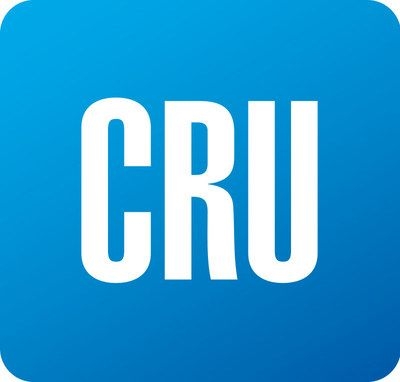Mexico

October 15, 2020
CRU: Buyers Weigh Limited Import Options as Domestic Prices Spike
Written by Estelle Tran
By CRU Analyst Estelle Tran, from CRU’s Global Steel Trade Service
The spike in sheet purchasing activity pushed prices up $200 /s.ton over the last two months and mill lead times for HR coil over six weeks. Steel Market Update, which is owned by CRU, also reported CR and HDG coil lead times in the 7-9 week range. The combination of higher prices and longer lead times have buyers considering imports. However, multiple contacts have reported that import offers are not the clear choice one might think.
When U.S. prices skyrocketed, so did international prices. For HR coil, buyers have referenced imports from South Korea around $590-600 /s.ton DDP Houston for arrival in February and March. These prices are about $40 /s.ton higher than the previous round of offers. The Korean offers could be workable given the Oct. 21 CRU Midwest HR coil price was $652 /s.ton. Opinions are mixed about how high prices will rise in the coming weeks, but most market sources expect that prices will be on the downswing by the time the Korean material that’s being offered arrives. Mexico also has not been filling the void left by the 7Mt of domestic U.S. flat rolled capacity that remains offline, as the Mexican market has been slab short.
For longs, rising U.S. prices have renewed interest in imports even with the 25% Section 232 tariff. October U.S. Midwest prices for rebar rose $30 /s.ton m/m, while prices for low carbon and high carbon wire rod jumped $60 /s.ton. Turkish exports to the U.S. have a relatively short lead time, which could make current trader offer prices of $580 /s.ton, DDP in the southeastern U.S. workable. In the next couple of months, Nucor’s 350,000 s.ton/y micro mill in Frostproof, Fla., will also be ready to serve the local market, which should limit the competitiveness of imports.
Canada Launches Six-Country Rebar Trade Case
Following a petition from Canadian steelmakers, Canada launched an antidumping investigation into rebar imports from Algeria, Egypt, Indonesia, Italy, Malaysia, Singapore and Vietnam. In Canada, the import penetration for rebar has been between 44-59% in the last three years. The subject countries represented 69% of the country’s imports and have met 34% of the country’s domestic consumption in the period of investigation – June 1, 2019, through June 30, 2020.
Trade cases in general tend to support domestic prices by restricting import competition. This case could be trickier to investigate, given the unusual trade circumstances as Canada reacted to the U.S. imposition of Section 232 (S232) trade restricting measures by imposing provisional safeguards. The period of investigation followed the lifting of provisional safeguard measures imposed in October 2018 that lasted until April 29, 2019. Covid-19 also creates challenges to comparing periods of time.
Finally, the countries named are smaller players in the global rebar market, as Canada imposed duties on major exporting countries—China, South Korea, Turkey, Japan, South Korea and Spain—and others in the last several years. The estimated dumping margins for these subject countries are lower in general—mostly in the 11-16% range, though Algeria has an estimated dumping margin of 20.2% and Italy 58.8%. Lower duty margins may be surmountable.
In Canada’s recent final determination of the corrosion-resistant sheet steel trade case against Turkey, the UAE and Vietnam, the final duty margins can be overcome in many cases. Net AD and CVD margins expressed as a percentage of the export price are 0-29.7% for Turkey; 0-41.5% for the UAE; and 2.3-71.1% for Vietnam. These margins are lower than the provisional duties found in March and are an example of how final duty margins may end up lower if the named parties advocate for themselves in the trade investigation. With multiple companies with no or single-digit duty margins for corrosion-resistant sheet, they could feasibly continue to ship to the Canadian market.
Brazilian Slab Prices Rise with Demand and Costs
Brazilian slab export prices continued to rise over the last month, as demand and cost increased. Despite uncertainty regarding the 2021 S232 quotas, U.S. mills have been actively buying slabs. Demand from the USA and other regions helped to push prices up $40 /t m/m to $490 /t FOB. Exporters are currently offering at $490-500 /t FOB and believe prices have reached the peak this year, as seasonality should weigh on demand in December-January.
Higher domestic demand has limited exports of finished products in Brazil. Supply in Brazil is particularly tight for sheet products, but the resumption of two BFs in this and next month should alleviate the tightness in 2021 Q1.
Mexico Investigates Slab Imports
Despite the tightness in the Mexican slab market caused by the AHMSA BF closure early this year, Mexico has launched an antidumping investigation into imports of four varieties of alloy slab from Brazil and Russia. The secretariat of the economy in Mexico found that in 2017-2019, Brazil shipped 70% of Mexico’s slab imports, while Russian material made up 23%. The Mexican sheet market is starting new trends amid the supply tightness in the slab market; Mexico has started buying HDG from Vietnam.
Outlook: Steel Prices Approach Peak
U.S. sheet steel prices still have more room to rise, as the mills continue to capitalize on supply tightness. Steel production in the week ended Oct. 17 was down 15% below y/y levels, while YTD steel production has been down 19.4%, according to the American Iron and Steel Institute, and market participants wonder if mills will announce capacity restarts given the elevated prices and long lead times. The announced acquisition of most of ArcelorMittal USA’s assets by Cleveland-Cliffs has market participants questioning how the company would manage idled capacity.
While service centers have been operating with extremely lean supply in the last couple of months, supply and demand should find a better balance next month, just in time for seasonal demand to slow.
Much remains uncertain, however, with two of the biggest questions being who will win the U.S. presidential election and whether the rise in Covid-19 cases will trigger shutdowns. The USA and Brazil are still set to renegotiate the S232 quotas for 2021 in December, but in general, we expect the status quo of trade with countries without S232 tariffs to continue for finished steel.
Request more information about this topic.
Learn more about CRU’s services at www.crugroup.com






